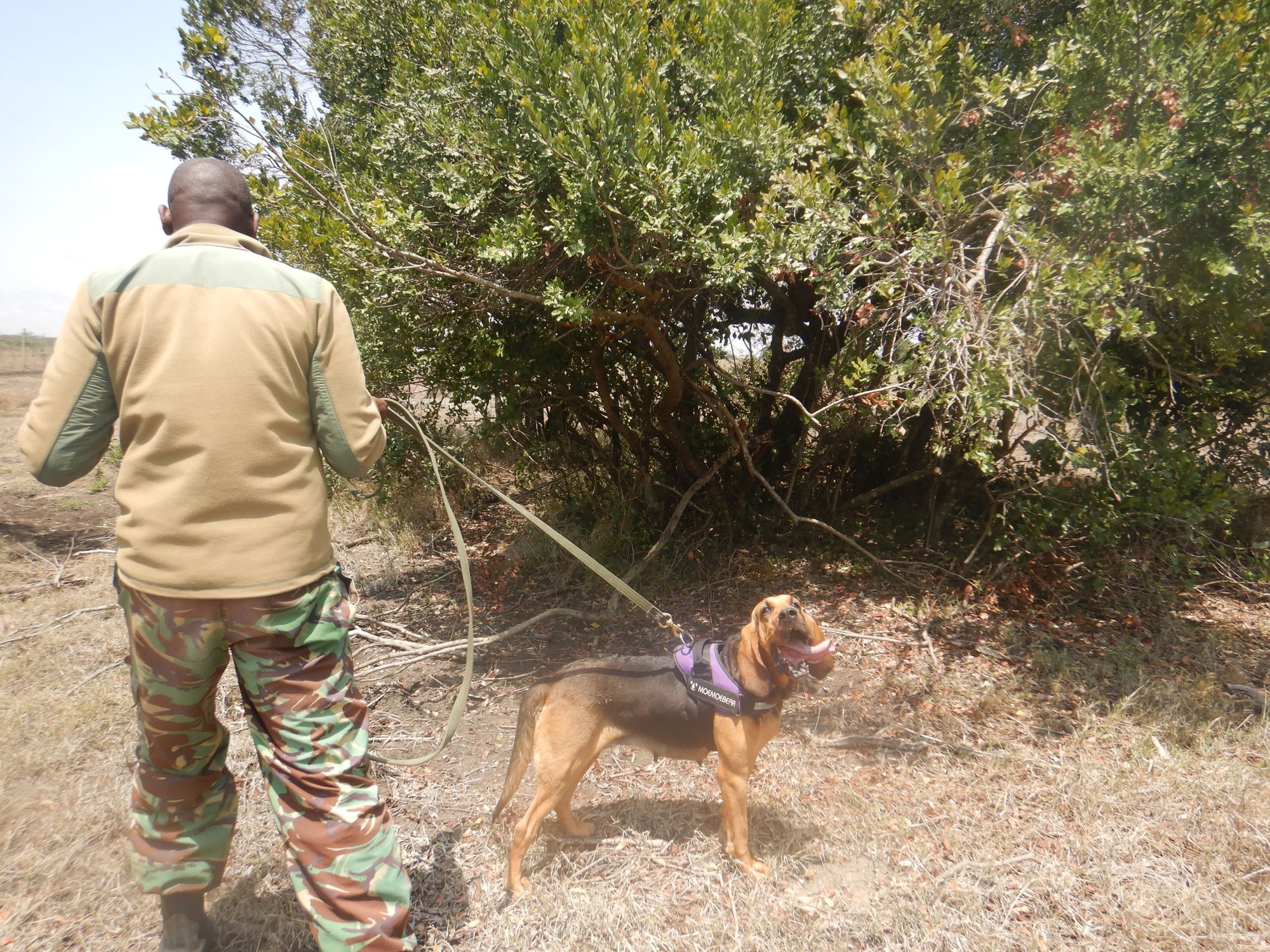
Keep Up or Die: Life Lessons and Reinforcement for a Way of Life
The bloodhound Malaika pulled hard, and we were off. Seconds before, my K-9 trainer Joel was giving her the scent, and moments later we were off. There would be rhinos and elephant along the way. There are some seven prides of lions, and they don’t discern if they’re hungry. There were two more with us, one American girl in her twenties and David, a K-9 guard with the rifle.
We are on Ol Pejeta, a 90,000 acre nature conservancy four hours north of Nairobi. This was my second trip, and this time the challenge was much harder. I had met the K-9 crew last year. Since then a few dogs had passed, puppies were in training, and Covid had hit them hard. Poachers, however, were still in the market, motivated by hundreds of thousands of dollars of prize money for the brutal murder of one of the last of the world’s great mammals.
That danger never ends. If anything, increased scarcity pushes the price up. That, combined with grinding poverty, means that there will always be poachers who will flirt with instant death by K-9 patrol. In fact, one poacher was shot on sight recently, a man known to be behind some seven previous poaching attempts. Still, they come. And that is why these dogs have to be trained to perfection, and those who run with them have to keep up, or the world loses its remaining rhinos, elephants and far too many other creatures.
We volunteers were there not only to watch, but to learn to keep up and see what kind of training the K-9 crew has to go through, what they do to keep in shape, and witness first-hand what it’s like to track down a poacher.
My partner Joel and I left Mary and David, who had to stay with her for safety, in the dust. The sun was high, and we tracked Malaika, in a harness and long leash, as she cast back and forth to follow the scent. Joel was quite tall and had a long stride. I do too but he has some six inches of height on me. I also had on a full backpack, which can slow you down a bit. But it didn’t. We moved as fast as she did without heading into a full run.
I felt perfectly safe with Joel and Malaika. Mary was safe with David.
The ground was cracked from the sun, and littered with the scat and spoor of every kind of creature. The thick, dry grasses hid all manner of Nature’s ways to trip you at speed, which requires that you multi-task in that way that all animals must to survive: watch where you put your feet, watch the bushes for predators, watch watch watch watch watch. This is the only true multi-tasking on earth, for without this kind of uber-awareness, you die.
And you bloody well have to keep up.
If you’re a herd animal, you have to keep up. If you’re a bachelor gazelle or Cape buffalo, you are far easier to bring down. If you’re injured, sick or old, like the jackal we saw with one badly injured back leg, you’re a walking lunch for a faster, healthier predator or team of killing lionesses.
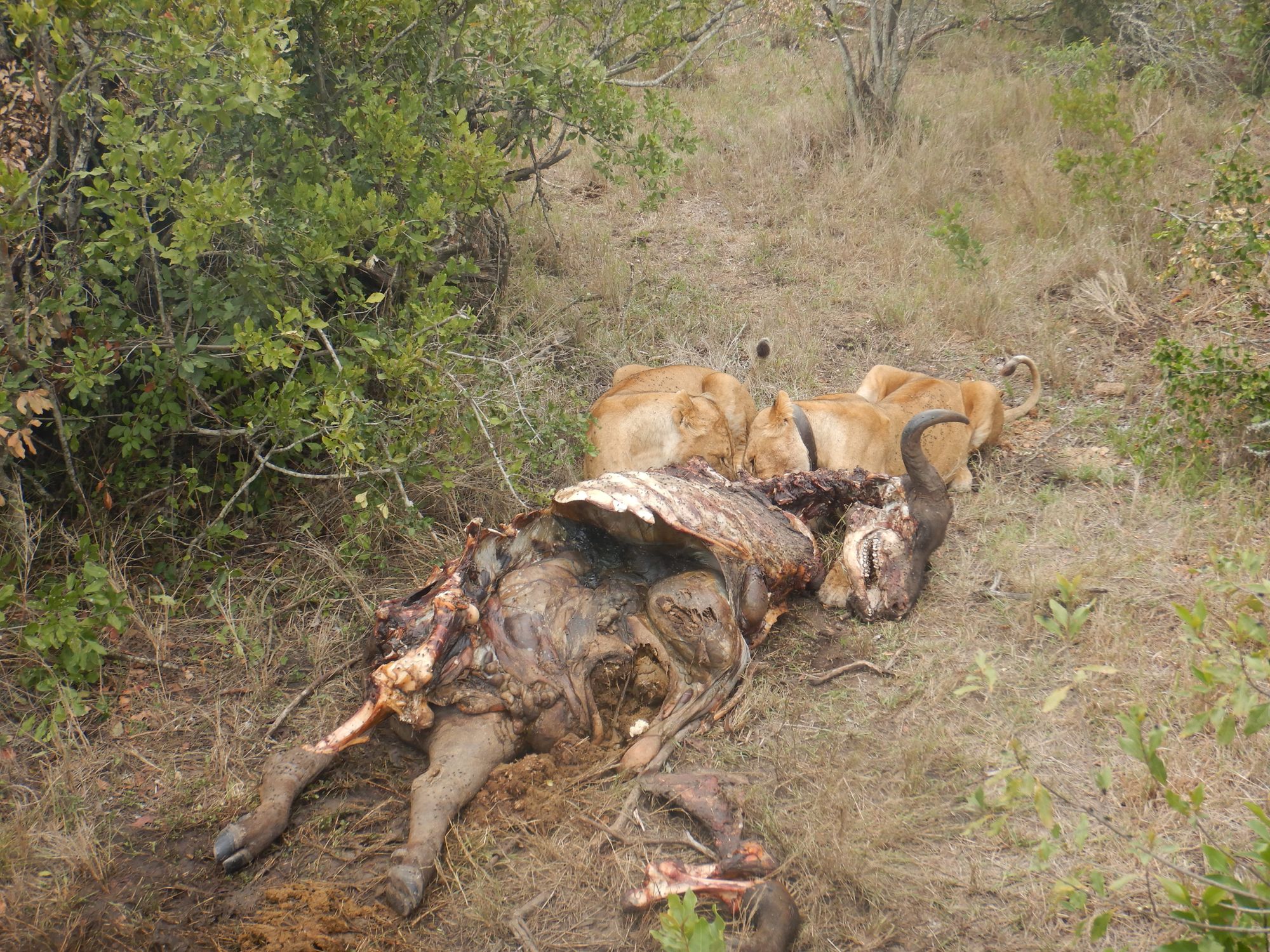
Nature provides. At some point it’s your turn.
The fast pace kept up. Off to our right were a pair of rhinos. They were unconcerned with us. The antelopes and gazelles leapt off in numbers, disappearing in that way of the superbly-camouflaged against the African plains.
My breathing evened out. My Keen hikers, broken in to perfection, grasped the ground and supported my ankles. I grinned at Joel, he grinned back, and we focused on Malaika.
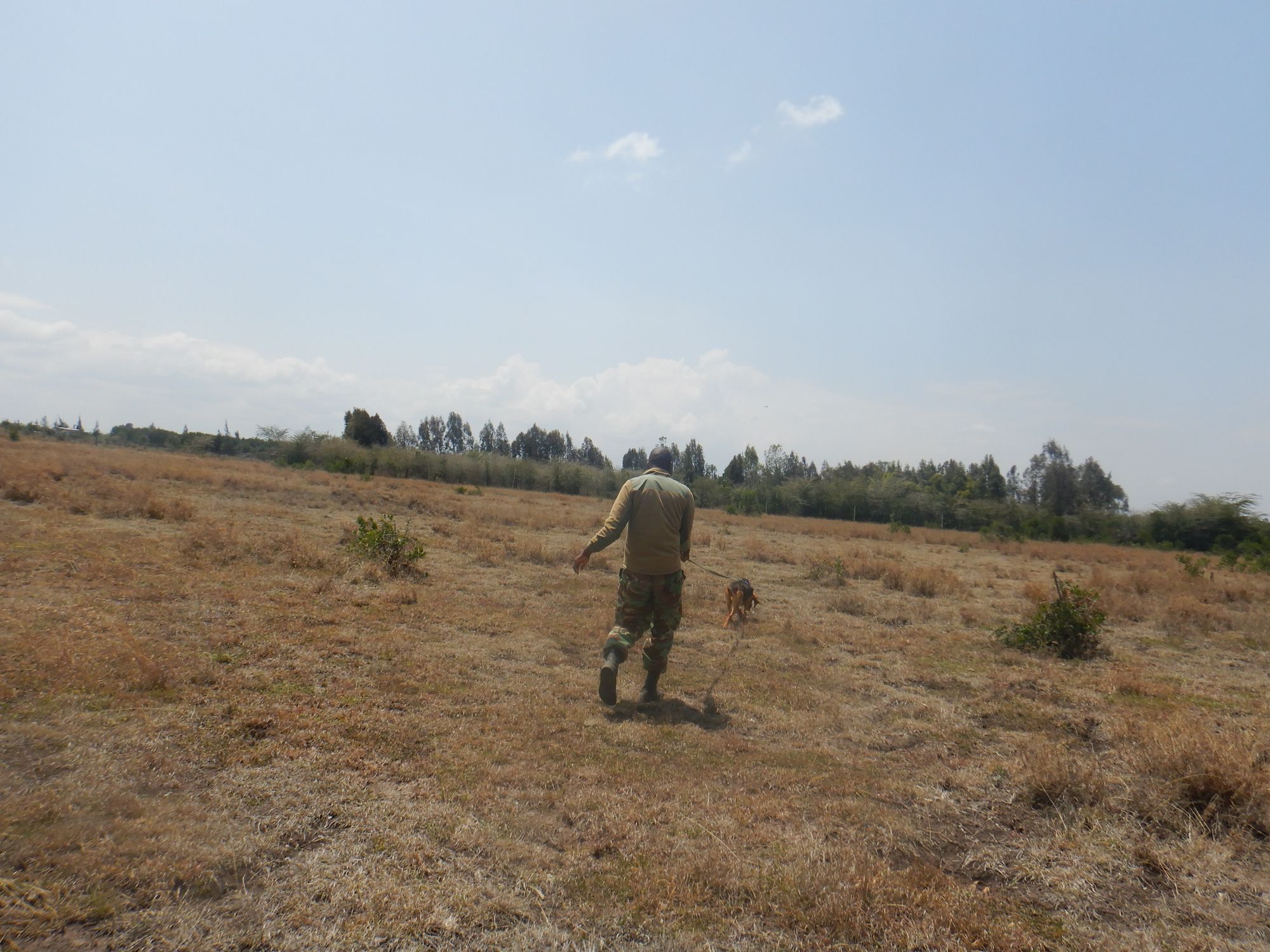
As the walk stretched on, the other half of our team fell so far back I couldn’t see them any more. Again, Mary was with David, who had the gun. While she was likely far safer than we were, walking into the bush without firepower, it was rough going.
About an hour later, our dog found our “poacher” hiding in a copse of trees, his dark green camouflage uniform making him impossible to make out in the dappled shade. Our bloodhound found him easily. She got her reward, was petted enthusiastically.
The wind,which is significant this time of year, has been in our faces. Can’t hear a thing. We had a job to do. We kept up with the dog. We found our poacher. It’s not our job to slow down, since the puppy is in training and has to keep moving. A slow dog might mean a poacher gets away, which we can’t afford. For me, as a journalist, it is my job to keep up.
This is just one reason why I train so hard.
It’s not Nature’s job to make the world safe for me. It’s my job to keep myself in shape for Nature.
At 68, the older I get and the more I put myself into the wild, the harsher these lessons become. It’s a fine lesson in the absolutes of how Nature works.
By now, the injured jackal may well be nothing more than a pile of reddish bones being chewed by hyenas.
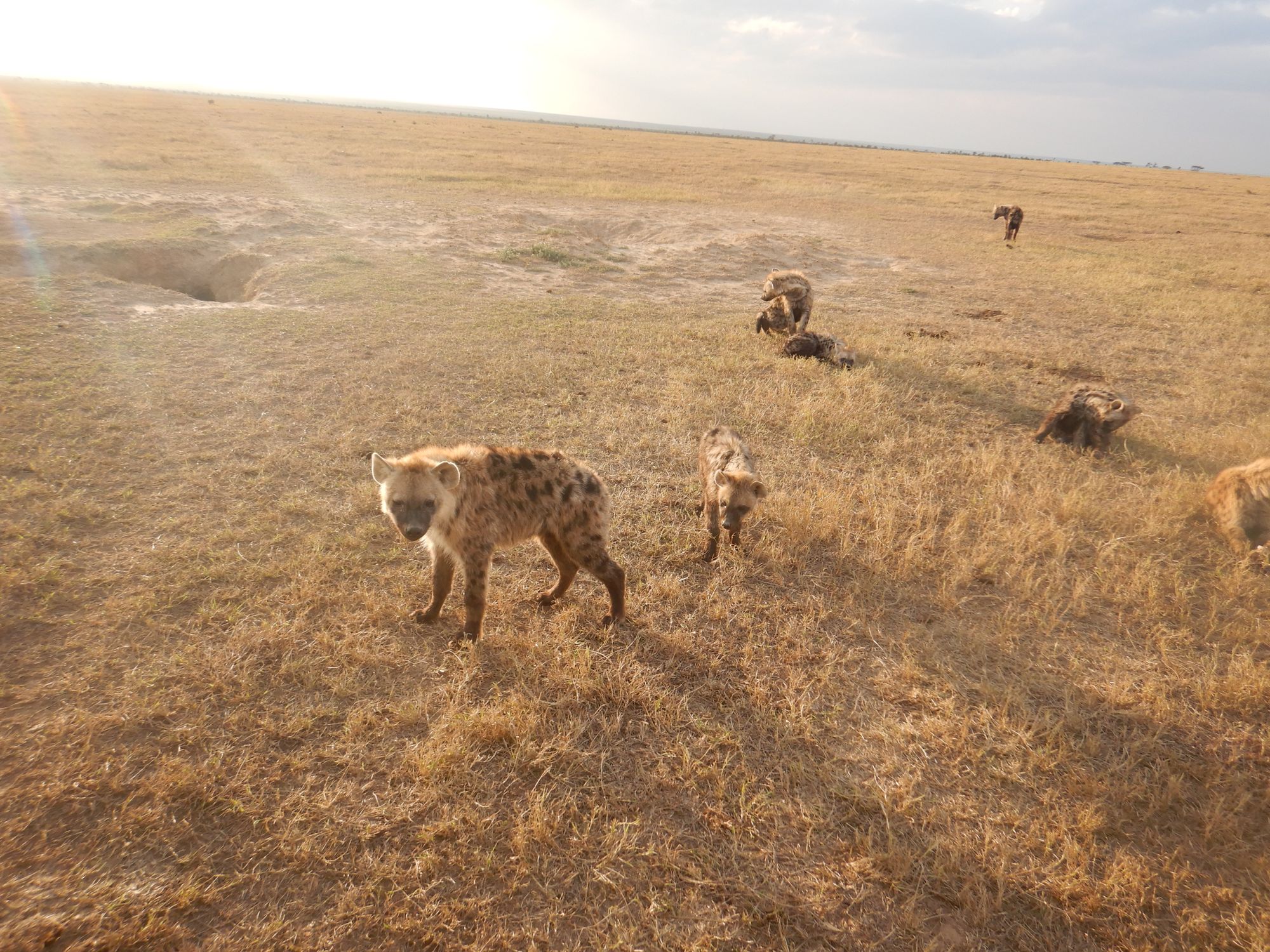
Nature can be terribly unforgiving. It’s a statement of fact in this world.
This is my ninth trip to Africa in eleven years. The older I get, the more imprinted this lesson is on my psyche. If we refuse to eat well, be conditioned, take care of the only body we have, we will be carcasses far younger. We ARE carcasses far younger, especially in Western society.
Covid has taught us that lesson in spades. Those who were and are in far better condition didn’t just survive Covid; many of those people had few symptoms and are not suffering long-haul Covid. While that is of course not completely true across the board, the stats bear me out.
Nature provides. She favors those who take care of what She gave us. The weak, the injured, the old, the infirm, the lazy, the out-of-shape, the self-indulgent, those who prefer excuses to the work, those don’t fare as well.
Nature owes us nothing. She gave us Life. What we do with that gift is up to us.
Of course we do our absolute best to support those who are disabled or infirm. I have multiple disabilities myself which is just one reason, again, why I train so hard. As do so many of my military brethren who have lost limbs. Somehow they end up running, competing, playing hard. They want to be in life, keeping up with the herd. It takes work.
For my part, I plan to keep up until it’s my turn to be someone’s meal any sooner than necessary.
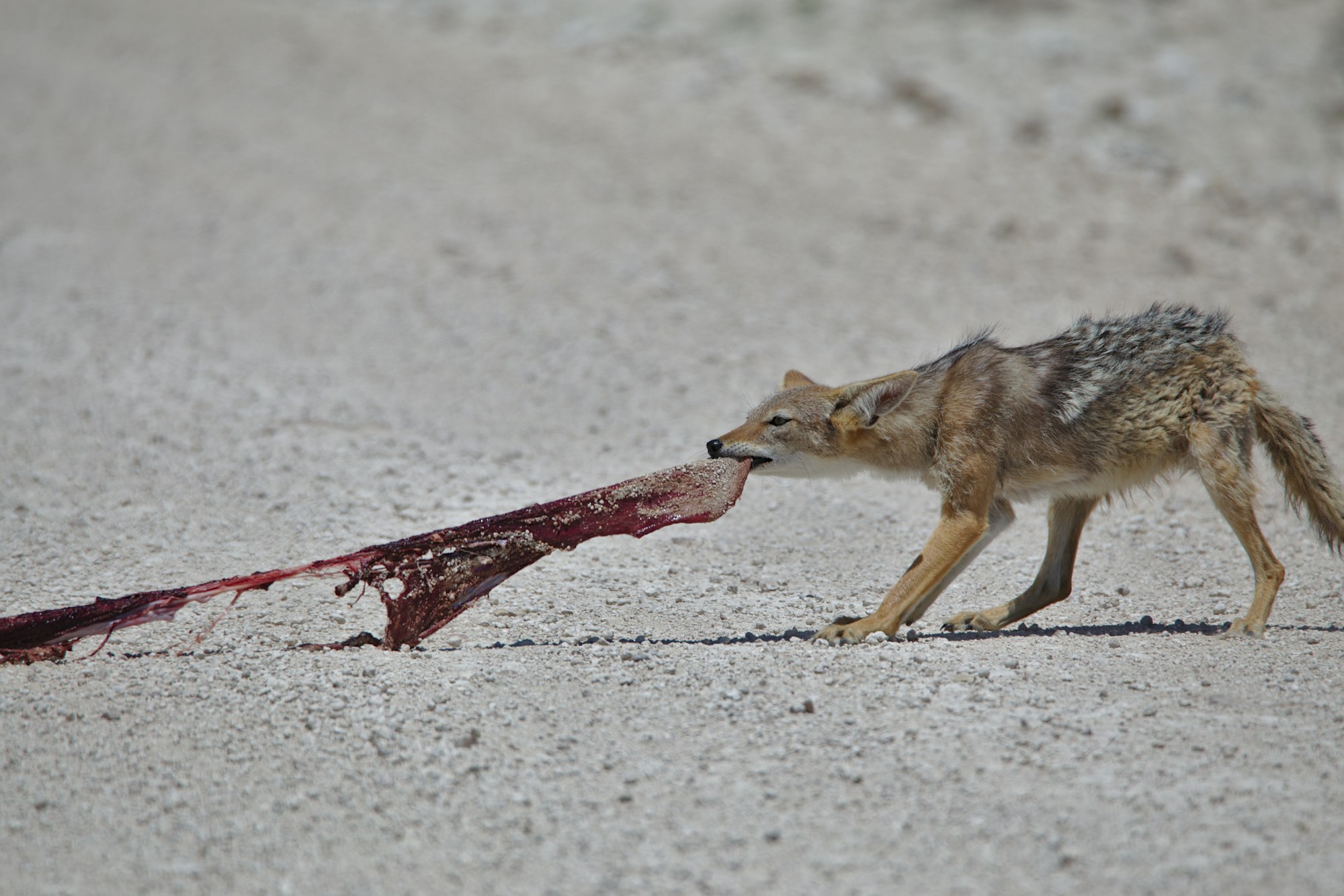
Comments powered by Talkyard.